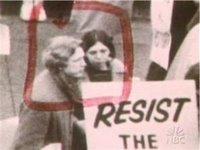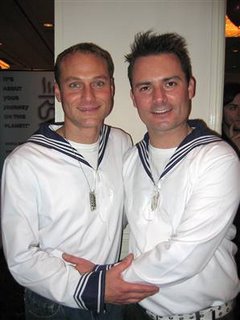If I didn't have sinus congestion from a cold already, I'd stand out in my front yard and scream an ear-piercing scream of frustration for about 10 minutes. Instead, I'm writing to you.
I am an editor who's been self-employed for 11 years and have, for that period, paid full premiums for health insurance coverage for my family. Today—the day before New Year's Eve—I got a notice that GHI, the health insurance provider through which I have a policy, is discontinuing the insurance plan I have for my family, as of April. Yeah, yeah, it's "nice" of them to give me more than the required 90 days' notice. The new plan that they'll be offering would cost my family $1,400/month, up from the $930/month we now pay.
Looks like Monday morning, my husband will tell his employer, a very small cabinetmaking firm, that we want to switch to the company's Blue Cross plan. But it's such a small company that the employer can't afford to shoulder any of the insurance premium costs; employees pay it all themselves. So we'll be paying about $1,000 a month.
January 5 update: We won't be signing on for insurance through my husband's employer; it's up to $1,258 a month now, which is out of our financial league. Unless we win the lottery, we'll be uninsured as of April 1.
But that's our limit. Once those premiums increase—and you know they will—we'll be among the uninsured. Maybe that's 6 months down the road; maybe it's a year. I have hypothyroidism, hypertension, hypercholesterolemia, depression, and a family history of diabetes, so diabetes is likely in my future. Yes, I exercise and attempt to eat a decent diet. My husband and one of our sons have attention-deficit/hyperactivity disorder (ADHD), and that son also has depression. All of these conditions require medications and some require therapy, and without health insurance, we'll be spending a huge chunk of our income—not that $930/month isn't already a huge chunk.
The cost of health insurance in New York State stinks big time. The cost of it in the U.S. stinks big time. Meanwhile, most members of Congress pay premiums that are ridiculously low [rate info provided by the U.S. Office of Personnel Management, the human resources department for the federal government] when compared with their salaries.
Somebody beam me and my family to Canada, please! Or better yet, please introduce legislation immediately that will set up a health care provision system similar to Canada's.
Your very unhappy constituent,
Katharine O'Moore-Klopf
P.S. Please read this piece from the San Francisco Chronicle for an idea about where to start the process of change.
My colleague Alexandra (a pseudonym, to protect her privacy), who has worked in and around health policy and insurance for 24 years, has this to say:
Read [the Chronicle piece] and decide for yourself which country has the more humane health care "system."
Research has shown that Americans and Canadians pay comparable amounts out of pocket for their health coverage. Americans pay it in premiums, out-of-pocket cost sharing, and surcharges (cost shifting) for uncompensated care; Canadians pay it in taxes. I'd rather pay more taxes and know that my family will have access to at least some level of service even if I decide to change jobs, my employer decides to drop its health coverage or raise its price beyond what I can pay, or some other employment change happens. Why on earth health insurance has to be tied to employment is beyond me. It is, and until we muster the courage or political will or good sense to change it, it always will be.
Down here, "getting some help [for health care costs]" (if you're talking about Medicaid) usually means months of waiting; demeaning, privacy-probing questions; and constant requalifying, with paperwork burdens designed to keep people from even bothering—not to mention the stigma of going onto a public assistance program. That's if you live in a state where you even qualify for anything. If you are a single nondisabled nonelderly adult with no kids, best of luck to you. If you seek care at a safety-net institution, you face hours and hours of waiting for often substandard care delivered by harried, underpaid, overworked staffers. Then you can't pay for the drugs that are prescribed (sometimes you can get samples, but not forever), unless you again spend time and energy trying to qualify for a pharmaceutical assistance program, again with endless requalifying. If you're lucky, you live in a town where someone cares enough to set up a clinic for the uninsured and doesn't charge you through the nose for care. If you're not, well, you're not. Some solution that is.
I know that each system looks different from the other side of the border, but you'll have to try very hard to convince me that the U.S. one is superior.
April 1 update: We now have insurance.
health care insurance self-employed GHI New York Canada Congress Hilary Clinton Chuck Schumer Tim Bishop EditorMom







![It's a sin to legalize torture [photo from the PCUSA Web site]](http://photos1.blogger.com/blogger/8104/658/400/SinToTorture.jpg)
